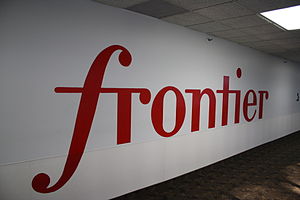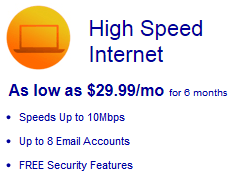 AT&T’s march towards monetizing data usage has just gotten a twist with a new idea from the company to develop “a toll-free wireless Internet” where app makers foot the bill for your data usage.
AT&T’s march towards monetizing data usage has just gotten a twist with a new idea from the company to develop “a toll-free wireless Internet” where app makers foot the bill for your data usage.
First appearing in a Wall Street Journal article, John Donovan, AT&T’s executive for network and technology, suggested the new “app maker pays”-option will ease consumers’ fears about using high bandwidth apps that eat into AT&T’s data allowances.
“A feature that we’re hoping to have out sometime next year is the equivalent of 800 numbers that would say, if you take this app, this app will come without any network usage,” Donovan said at the Mobile World Congress in Barcelona, Spain. “It’d be like freight included.”
Critics of the idea pounced immediately, calling AT&T’s latest plan the realization of former CEO Ed Whitacre’s dream that content producers “can’t use [AT&T’s] pipes for free.”
Harold Feld, legal director at consumer group Public Knowledge thinks he’s got AT&T’s number:
Just to be clear, here is what AT&T Wireless is doing:
1. Create an artificial scarcity with an arbitrary bandwidth cap for its wireless services;
2. Charge users who exceed this arbitrary bandwidth cap;
3. Claim to do consumers a favor by letting the ap developer pay for exceeding the arbitrary bandwidth cap.
Which cuts to the heart of the problem in wireless, IMO. The argument in favor of a wireless capacity cap is, in a nutshell, “wireless is different from wireline because the physics imposes bandwidth limitations.” In the presence of these bandwidth limitations, we need a rationing scheme of some kind. Bandwidth caps are a neutral way of rationing and encourage app developers to write more efficient applications — thus improving the system overall.
The problem with this argument is it is impossible at present to determine just how true or false it actually is. I referred above to AT&T’s bandwidth cap as arbitrary. As far as I (or any outside observer) can tell, AT&T just selected a number and said “this is where we impose a cap.” You can buy a higher cap on a monthly basis, or can pay as you go above the cap in the form of overages.

AT&T has no worries about data tsunamis and "exafloods" when app makers or consumers are willing to pay more.
In fact, AT&T’s journey away from unlimited access to their wireless network is well underway. Just two years ago, customers paid $30 a month for unlimited data on a smartphone. Then AT&T ended “unlimited” access, imposing a 2GB usage cap on their most popular wireless data plan. Now AT&T is looking to monetize its wireless traffic even further as customers grow more reticent about using high volume applications that could threaten one’s usage allowance.
Despite AT&T’s ongoing drumbeat America is in the midst of a wireless bandwidth crisis, the ‘national emergency’ is over as soon as someone — anyone other than AT&T — opens their wallet and agrees to pay more for data traffic. Then the sky is the limit.
The logical inconsistencies of a company crying for more mobile spectrum concurrently envisioning new ways to monetize high volume wireless traffic (eg. large file downloads, online video, etc.) exposes the hollow center of Internet Overcharging. The “exaflood”/data tsunami only seems to threaten AT&T’s network when content producers and/or consumers are not paying extra for every kilobyte.
As Stop the Cap! has argued before, AT&T is increasingly in the bandwidth shortage/rationing business.
The company underspent on its network, balked at the price tag to upgrade capacity (but had no trouble planning to pay substantially more to acquire T-Mobile), and now complains it has to charge higher prices because the federal government blocked its merger and the FCC won’t hand over additional spectrum.
There are two approaches to fat profits in the broadband business these days:
-

A Proud Member of: Team Rationing for Profit
Team Innovation: Believe in your product and nurture its growth with upgrades, innovation, and pricing that guarantees an enthusiastic and loyal customer base;
- Team Rationing for Profit: Leverage your dominant market power by rationing your product, charging higher prices for less service. Monetizing usage controls traffic growth, reducing the expense of upgrading your network. With limited competition, even alienated customers face few alternative choices and a steep early termination exit fee.
Based on statements from AT&T’s Donovan, AT&T is a firm believer in the latter.
“There’s a view of an entitlement that says that any impediment to riding over the top of our network is inherently wrong, is un-American,” Donovan said, adding AT&T needed to find creative ways to deal with and profit from surging mobile-data use.
Feld thinks it says something else.
“This new plan is unfortunate because it shows how fraudulent the AT&T data cap is, and calls into question the whole rationale of the data caps,” Feld said. “Apparently it has nothing to do with network management. It’s a tool to get more revenue from developers and customers.”
 Frontier Communications is enjoying “press release”-like praise for its broadband service in the state of Indiana, courtesy of The Times newspaper:
Frontier Communications is enjoying “press release”-like praise for its broadband service in the state of Indiana, courtesy of The Times newspaper:

 Subscribe
Subscribe








